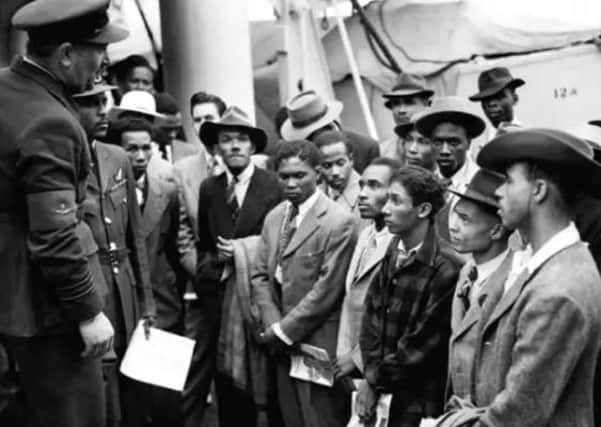Letters: Not just Windrush generation who fall foul of UK authorities


As someone who arrived in Britain with my mother days before my fifth birthday in 1948, I have followed the Empire Windrush story with more than interest and considerable empathy. We were not even from the Commonwealth. We were refugees from Eastern Europe. My parents had to register with the Aliens Department, which I seem to remember was bracketed with Firearms. They never resented this, but felt safe in this country.
They applied and got naturalisation as soon as my father had been in this country for five years.
Advertisement
Hide AdAdvertisement
Hide AdTheir fear had always been of enforced repatriation to what was no longer the country they had grown up in, resulting in certain death at the hands of the occupying power, the Soviet Union. The fact that such betrayals were known about at the time was demonstrated in the play Cockpit, recently staged at the Royal Lyceum. Yet the effect of the Nazi-Soviet Pact on the Baltic States and Poland is glossed over.
I grew up knowing that my status as British by Naturalisation was inferior to those actually British-born, but my security was shaken when renewing my passport 20 years ago. On all previous occasions I had merely sent in the old passport and a form.
Now, because of changes in regulations, I had to produce documents I didn’t know I had: my birth certificate, which was irreplaceable, but was in Latvian on high acid content paper, a translation of it by a colleague of my mother’s on University of Edinburgh paper, naturalisation certificate, added to my father’s certificate, and a very tatty copy of the change of surname in a copy of the Edinburgh Gazette.
My mother, late in life, came to resent the question “Where do you come from?”, often asked with malicious intent.
I remember, in the 1980s, being employed (because I sound native British) to book a room in a B&B for a Russian dissident whose own enquiry had been turned down because she sounded foreign.
There is a difference between racism and xenophobia.
The Home Office seems to be suffering from both.
MARINA DONALD, Edinburgh
